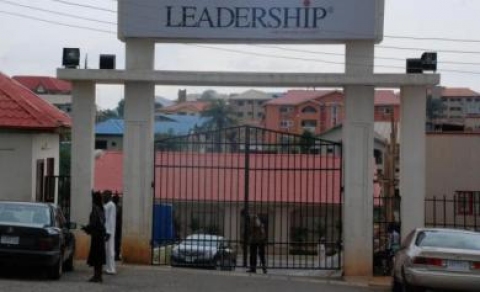Early this week, four journalists with the Leadership Newspapers in Abuja were arrested by the police for publishing a news report that spoke of a presidential memo which directed that everything possible must be done to frustrate the creation of the All Progressives’ Congress through the merger of four major opposition parties.
Their grouse with the police was because they refused to release the name of their source, who leaked the presidential directive to them. Their refusal to do so saw two of the journalists held till evening, while the other two were released the following night.
All attempts at justifying the arrests of the journalists by Reuben Abati, the Special Adviser to the President on Media and Publicity, who shockingly was a journalist and top columnist before his current romance with power in which his reputation and integrity is being dragged through the mud, fails to cut it for me, and all those who are familiar with journalism and law.
As everyone who is familiar with the ethics of journalism knows, you never reveal your sources. Not only that, one of the pillars of democracy is the right to freedom of speech and the expression of opinion. Admittedly, freedoms come with responsibility, but there is a provision in the laws of Nigeria that if one perceives falsehood to be written about him/her, s/he can sue the publisher for libel. The intentional disregard of this legal option to seek redress over a wrong by the Presidency gives one cause for worry.
Also, towards the end of the week, news broke that the Nigerian Film and Video Censors’ Board (NFVCB) had banned the release and distribution within Nigeria of a democracy titled ‘Fuelling Poverty’, which examines the scam in the fuel subsidy scheme in Nigeria, and the protests that greeted its withdrawal early last year.
According to the NFVCB, they could not allow the release of the documentary because “its contents are highly provocative and likely to incite or encourage public disorder and undermine national security.” They also went further to place the filmmaker, Ishaya Bako under surveillance.
Unknown to them, the documentary had been released online since last year, and their banning it only served to make it popular, as the news drove people in massive numbers to watch it. This, in the end, made their ban counter-productive.
In the light of these two events, we have to start asking ourselves: where is our democracy heading to when the state begins to use its official power to muzzle the freedom of expression of its people? Are we back in the dark days of military dictatorship when newspaper houses were firebombed, magazines published from secret locations and radio stations were underground? Is this what we fought for?
We have gone way too far as a people and as a nation to start travelling in reverse. We cannot agree that to live in fear of our government. Like Alan Moore once said, people should not be afraid of their government, but rather, the government should be afraid of their people.
This government, and every other government to come after it, should know that the people it serves should not be silenced, unless they have something to hide. It is admirable the way Nigerians have risen in unison to condemn these acts of dictatorship. It should act as a sign that we would not take these excesses lying low.
This democracy and this nation is bigger than any one man or government. We shall not allow it to be turned into a dictatorship.
Follow Mark Amaza on Twitter at @Amasonic



Leave a Reply